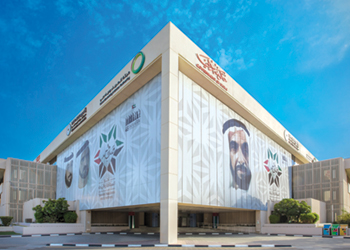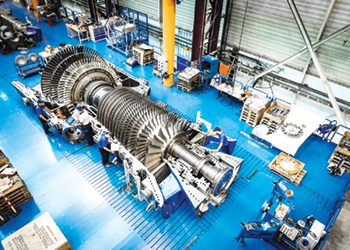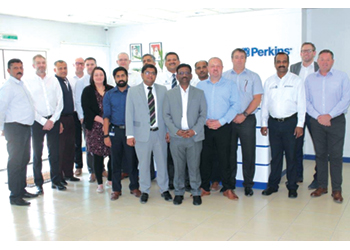
 Bigger batteries at a plant
Bigger batteries at a plant
The NAS battery will be used to stabilise fluctuations in solar power output, plus other grid applications, including energy time-shifting and frequency control
Early this year, the Abu Dhabi Department of Energy (DoE) opened the region’s first grid scale battery deployment and the world’s largest virtual battery plant with a capacity of 108 megawatts distributed over 10 sites across the emirate.
The opening, which coincided with the Abu Dhabi Sustainability Week 2019, marked the first integrated control system for energy storage in Abu Dhabi. It aims to serve the city by ensuring load balancing during the day.
The project marks a remarkable transition for the emirate to ensure efficient and optimum use of energy and integration of solar and other forms of renewables to meet growing demand and provide load balancing to improve the distribution of workloads across multiple resources.
This virtual battery plant will secure additional electricity supply for 6 hours in emergencies through the use of storage batteries.
Also, last year, Dubai said it was preparing to trial the use of battery storage that will be linked to its massive solar park located in the desert.
Japanese ceramics company and NAS storage provider, NGK Insulators Ltd has already supplied 1.2 MW of its large-scale NAS (Network Attached Storage) battery systems for a demonstration project at Phase I of the Mohammed bin Rashid Al Maktoum Solar Park.
NGK says that the batteries, which are now being installed at the solar facility, have an aggregate storage capacity of 7.2 MWh. The devices will be tested at the first section of the big solar park – a 13 MW plant built by US thin film module manufacturer, First Solar.
The NAS battery will be used to stabilise fluctuations in solar power output, plus other grid applications, including energy time-shifting and frequency control, according to NGK. The Japanese provider also claims that its NAS battery is the only storage technology that has proven operational success in the Middle East.
"The NAS battery is a high-temperature battery and thus uniquely suited for operation in locations with extreme ambient temperatures, such as the heat of the Middle East," says NGK.
In a recent interview with Utilities Middle East, Saeed Mohammed Al Tayer, CEO & MD of Dubai Electricity and Water Authority (Dewa), which owns the solar park, says that battery storage needed to be tested before being fully embraced.
"We are presently installing NDK storage for about 1.2MW as an R&D (Research and Development) project. But still the storage in battery technology is not proven yet. We need time to test it and determine its effectiveness," says Al Tayer.
Due to their decreasing costs, lithium-ion batteries are now dominating a range of applications including electric vehicles, computers and consumer electronics.
Based on research about energy storage costs and performance and analysis of the potential role energy storage could play within the coming years, utilities should prepare for the advent of cheap grid-scale batteries and develop flexible, long-term plans that will save consumers money.
The amount of electricity consumers use varies according to the time of day and between weekdays and weekends, as well as seasonally and annually as everyone goes about their business.
For example, the times when consumers use the most electricity in many parts is nearly double the average amount of power they typically consume.
Utilities often meet peak demand by building power plants that run on natural gas, due to their lower construction costs and ability to operate when they are needed.
However, it’s expensive and inefficient to build these power plants just to meet demand in those peak hours. It’s like purchasing a large van that you will only use for the three days a year when your brother and his three kids visit.
The grid requires power supplied right when it is needed, and usage varies considerably throughout the day.




































































